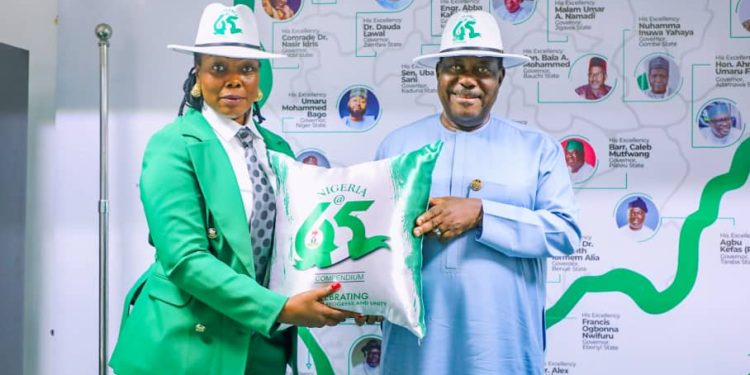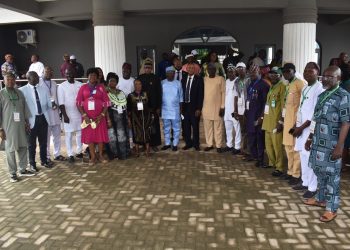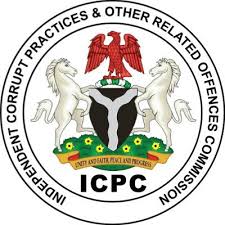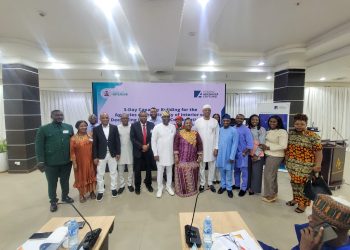…asserts that project aligns with Renewed Hope Agenda’s vision of celebrating progress and fostering national optimism
By Nkechi Eze
As Nigeria prepares to celebrate its 65th Independence anniversary, one of the flagship initiatives to mark the milestone is the Nigeria @ 65 Compendium Project, a national legacy designed to document the nation’s history, achievements, challenges, and aspirations.
The project owes its successful take-off to the support of the Secretary to the Government of the Federation (SGF), Senator George Akume, whose office not only approved but also provided a solid platform for the idea to blossom. By mobilizing institutional backing and creating the enabling environment, the SGF gave the initiative the recognition it deserved at the highest levels of government, ensuring that Nigeria’s 65-year journey could be properly celebrated and preserved for posterity.
Equally pivotal to the realization of the compendium is the Permanent Secretary OSGF Sanusi Danjuma, whose guidance and administrative leadership provided the stability needed to translate the vision into action. His oversight of the inter-ministerial processes, facilitation of stakeholder buy-in, and commitment to transparency helped steer the project on the path of success. Working closely with the SGF, he ensured that government machinery gave the project the official weight and continuity required for its sustainability.
Also instrumental is the Director of Information, Segun Imohiosen, whose tireless efforts, meticulous coordination, and professional oversight helped transform the concept from a mere vision into a tangible national project. His role in facilitating access to archival resources, guiding communication strategies, and keeping the project aligned with its objectives provided the backbone that will ensure the publication stands as a worthy historical and educational reference.
Together, the SGF, the Permanent Secretary, and the Director of Information created the strong institutional support base without which the Nigeria @ 65 Compendium Project could not have seen the light of day.
Building on this foundation, the convener of the Nigeria @ 65 Compendium Project, Carolyne Isaac, and her team have worked to shape a publication that not only celebrates the country’s journey but also redefines how Nigeria is seen at home and abroad. In an exclusive interview with Newspeg in Abuja, Carolyne shed light on the inspiration, vision, and long-term goals of the initiative, stressing that it is designed not only to celebrate the country but also to project a “cheerful side of Africa” often neglected in global narratives.
When asked what inspired the project, Carolyne explained that the idea stemmed from years of observing how Africa, and particularly Nigeria, is often presented in a negative light in international discourse. “The Western world tends to portray Africa as a continent where nothing good comes out. While we acknowledge our challenges, we also felt it was necessary to showcase the positive side of Africa, especially Nigeria.
Operating from Ghana for years as an African news magazine and engaging with major cities across the continent, Carolyne and her team realized that Nigeria was not telling its own story strongly enough. ‘Across Africa, the reaction you get when you mention Nigeria is often negative. I felt we were not celebrating ourselves enough. Nigeria at 65 offers us an opportunity to do something different. A man or woman at 65 would have children, grandchildren, and great-grandchildren; in the same way, Nigeria has come a long way. We may not have gotten to where we ought to be, but we have tried, we have survived, and we have achieved a lot that should be documented and celebrated.’”
She explained that the compendium is meant to trace Nigeria’s trajectory from independence to the present and into the future, in a manner that can serve both as a historical reference and an educational resource. “We thought, why not document where we started from, where we are today, and where we are going? A compendium that can sit in major embassies, in universities, and in secondary schools for researchers and students to connect with Nigeria’s history and aspirations. That is how the Nigeria @ 65 special project was conceived.”
On the format of the compendium, Carolyne assured that it will not be a bulky, text-heavy publication that would turn off readers, particularly young people. “We recognize that many Nigerians do not like reading long texts. That is why we are working with the Ministry of Information to extract archival images to make the book highly pictorial. This edition will be produced both in print and electronic formats. Beyond that, we are creating an electronic documentary series featuring interviews with key decision-makers and stakeholders, ministers, statesmen, and leaders, whose experiences and insights will add depth to the project.”
Responding to a question on whether it would be a one-off initiative or an annual feature, Carolyne confirmed that the compendium would be updated regularly. “This is not going to end with this edition. We want to make it a yearly publication so that Nigeria’s story is continuously told and updated. This way, future generations won’t struggle to find reference points about our history, our leaders, and our collective journey.”
On the themes being highlighted, she noted that unity remains the most striking achievement in Nigeria’s 65-year history. “There were predictions that Nigeria would not survive as one country beyond certain times. Yet here we are, still united despite our differences. Unity is, for me, the most important achievement. We may not have gotten it all right, but we are certainly not where we used to be.”
Education is also a major thrust of the project. With history only recently reintroduced into Nigerian schools after being abolished in 2007, Carolyne expressed concern about the loss of historical consciousness among young people. “Many youths today have no knowledge of Nigeria’s history because the subject was removed from the curriculum for over a decade. That’s why we insisted on including the Ministry of Education in the inter-ministerial committee overseeing this project. Beyond publishing the compendium, we want it to serve as a resource material that teachers and lecturers can use to pass down knowledge to the younger generation.”
Looking ahead to the official launch of the compendium, Carolyne urged Nigerians to see the project as an opportunity to keep hope alive despite present economic and social challenges. “Things may not be the best, but Nigeria has continued to make progress despite the challenges. My message to Nigerians is to keep hope alive, remain optimistic, and celebrate how far we have come as a nation. With the Renewed Hope Agenda already taking root, there is every reason to believe that things will get better soon and that brighter days lie ahead for our country.”
She concluded by reiterating that Nigeria @ 65 is not just a publication, but a legacy project aimed at preserving history, promoting national pride, and projecting the cheerful side of Nigeria and Africa to the world.

















